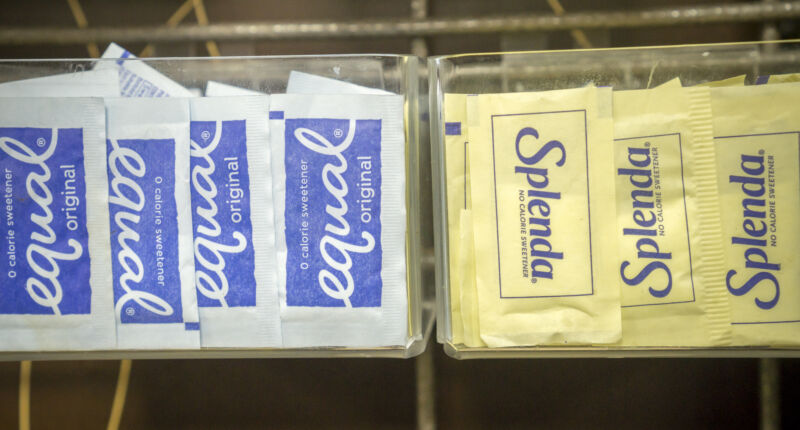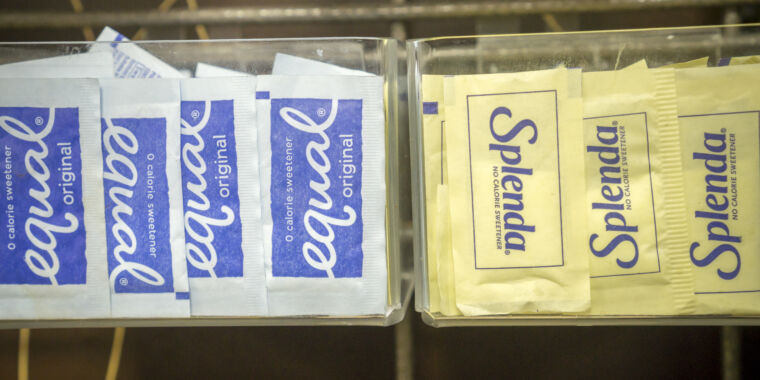
People trying to shed pounds often cut calories by consuming diet drinks, artificially sweetened treats, and other sugar substitute products. But according to a new review from the World Health Organization, those artificial sweeteners appear to be ineffective for weight management — and worse, they seem to increase the risk of type 2 diabetes, cardiovascular disease and even long-term death.
In a guideline published Monday, the WHO recommended not using artificial sweeteners for weight management or to improve health in general. The recommendation applies to healthy children and adults, but is not intended for people with pre-existing diabetes, who may still benefit from using artificial sweeteners.
“Replacing free sugars with NSS [non-sugar sweeteners] does not help with long-term weight management. People should consider other ways to reduce free sugar intake, such as consuming foods with naturally occurring sugars, such as fruit, or unsweetened foods and drinks,” Francesco Branca, WHO director for nutrition and food safety, said in a statement. .” People should. reduce the sweetness of the diet altogether, starting at a young age, to improve their health,” he added.
Bittersweet findings
The WHO’s conclusion is not surprising; there’s been data for years suggesting that synthetic sweeteners could backfire on efforts to improve health. In the US, obesity rates have risen, as has the use of artificial sweeteners.
For the WHO assessment of sweetener replacements, experts systematically reviewed data from 283 unique studies, including 50 randomized controlled trials, 97 prospective cohort studies, and 47 case-control studies. The studies looked at a range of artificial sweeteners, including those commonly used in the US: saccharin (Sweet’n Low), aspartame (Equal), acesulfame potassium (Ace-K), sucralose (Splenda), neotame, advantame, stevia, and stevia derivatives.
In the randomized controlled trials, WHO experts noted that artificial sweeteners reduced calorie intake, body weight and body mass index (BMI) – at least initially. Most of these studies lasted only three months or less. In the studies that lasted six to 18 months, the findings were confusing but did not seem to suggest an effect on body weight.
Part of the problem was how some trials compared the use of artificial sweeteners to regular sugar. For some, subjects were given foods or drinks containing sugar or artificial sweeteners in addition to their regular diets, resulting in direct comparisons. In these cases, participants who received the artificially sweetened products showed a lower body weight than people who ate the sweet bonus treats.
But in practice, many people choose to swap sugary foods and drinks in their current diet for artificially sweetened versions. Only four studies have specifically tested this: putting artificially sweetened drinks, such as diet soda, in the diets of people who normally consumed sugary drinks. These studies reported weight reductions from the use of artificial sweeteners, but the reductions were smaller than in the direct comparison trials and were statistically insignificant. The beneficial effect on BMI was completely lost. In particular, some of these studies had groups where participants were switched from sugary drinks to water or nothing (placebo) — and water or placebos were just as effective, if not more effective, at reducing weight. WHO experts note that this suggests that the weight loss seen in some trials of artificial sweeteners is likely simply due to a reduction in calories, not an inherent property of artificial sweeteners.

